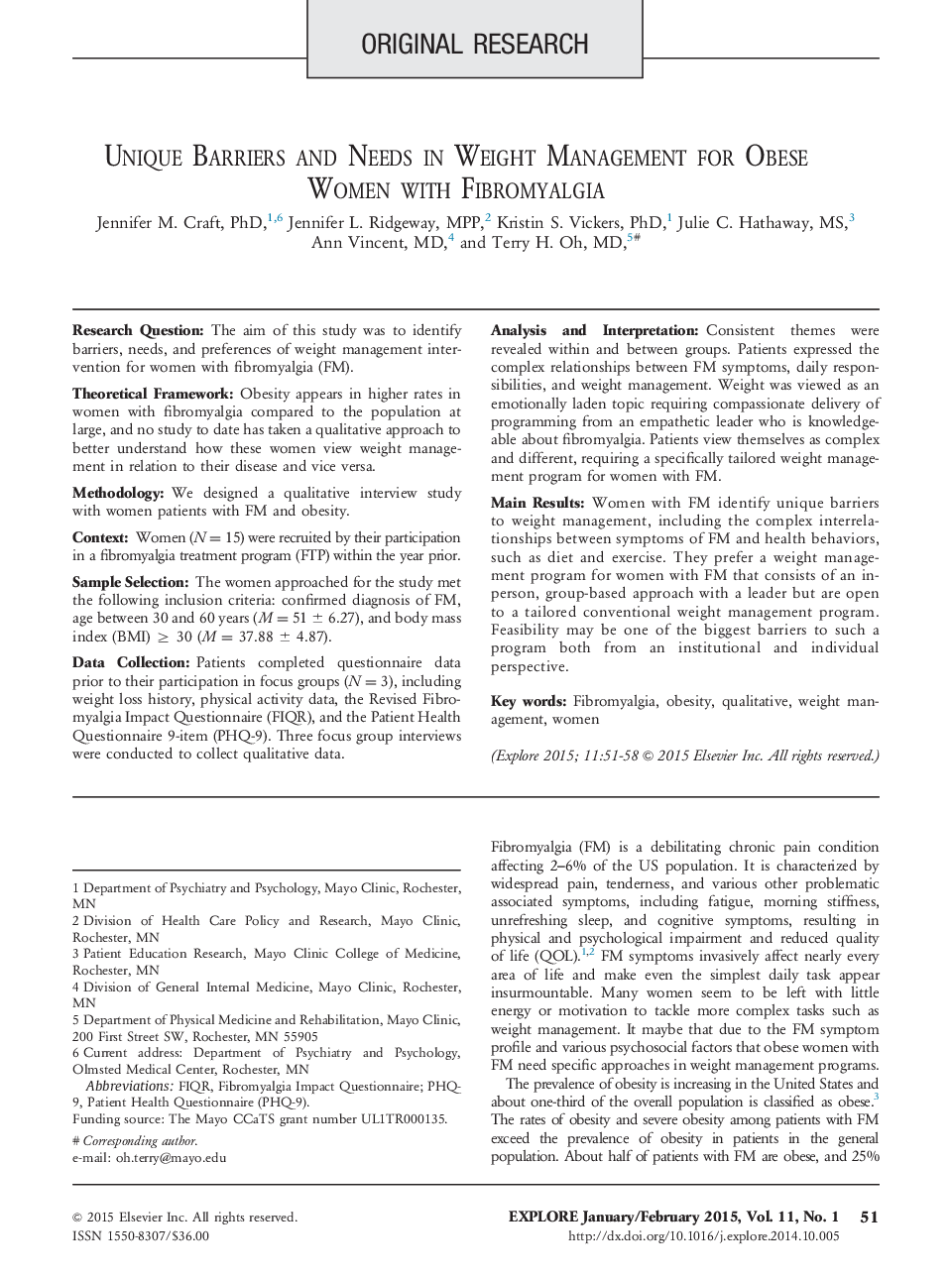| Article ID | Journal | Published Year | Pages | File Type |
|---|---|---|---|---|
| 5872078 | EXPLORE: The Journal of Science and Healing | 2015 | 8 Pages |
Research QuestionThe aim of this study was to identify barriers, needs, and preferences of weight management intervention for women with fibromyalgia (FM).Theoretical FrameworkObesity appears in higher rates in women with fibromyalgia compared to the population at large, and no study to date has taken a qualitative approach to better understand how these women view weight management in relation to their disease and vice versa.MethodologyWe designed a qualitative interview study with women patients with FM and obesity.ContextWomen (N = 15) were recruited by their participation in a fibromyalgia treatment program (FTP) within the year prior.Sample SelectionThe women approached for the study met the following inclusion criteria: confirmed diagnosis of FM, age between 30 and 60 years (M = 51 ± 6.27), and body mass index (BMI) ⥠30 (M = 37.88 ± 4.87).Data CollectionPatients completed questionnaire data prior to their participation in focus groups (N = 3), including weight loss history, physical activity data, the Revised Fibromyalgia Impact Questionnaire (FIQR), and the Patient Health Questionnaire 9-item (PHQ-9). Three focus group interviews were conducted to collect qualitative data.Analysis and InterpretationConsistent themes were revealed within and between groups. Patients expressed the complex relationships between FM symptoms, daily responsibilities, and weight management. Weight was viewed as an emotionally laden topic requiring compassionate delivery of programming from an empathetic leader who is knowledgeable about fibromyalgia. Patients view themselves as complex and different, requiring a specifically tailored weight management program for women with FM.Main ResultsWomen with FM identify unique barriers to weight management, including the complex interrelationships between symptoms of FM and health behaviors, such as diet and exercise. They prefer a weight management program for women with FM that consists of an in-person, group-based approach with a leader but are open to a tailored conventional weight management program. Feasibility may be one of the biggest barriers to such a program both from an institutional and individual perspective.
